1. “Lock and Load”

“Lock and load” originally referred to preparing a firearm for action by locking the weapon and loading it with ammunition. Over time, it evolved into a phrase used to signal readiness, whether for a mission or an important event, Herb Lin explains in Lawfare. Now, it’s commonly used in everyday speech to mean getting ready to face something, like an upcoming challenge. It’s often used when someone is gearing up to take on a big task or is ready for action, making it a versatile, energetic expression.
The phrase gained popularity during World War II, where it was frequently heard among soldiers preparing for battle. It also took on a symbolic meaning, representing a mindset of preparedness and determination. Today, it’s often heard in pop culture, especially in action movies or video games. It has transitioned from military jargon to a more general statement of “getting ready,” sometimes even with a bit of humor.
2. “Going AWOL”
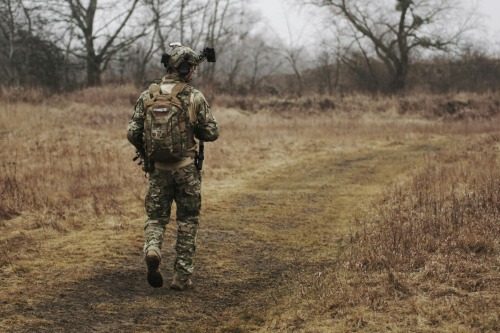
AWOL, which stands for “Absent Without Leave,” was a formal military term used to describe a soldier who left their post without permission. It’s a phrase that now gets thrown around when someone doesn’t show up for an appointment or a meeting without explanation, according to the Collins Dictionary. People often use “going AWOL” in a lighthearted way when they vanish without warning, even for something as casual as skipping out on a friend’s gathering. It’s fascinating how this serious term transitioned into something commonly used in everyday life.
The phrase brings with it a connotation of abandoning responsibilities or commitments, which makes it so universally relatable. In the military, being AWOL can result in disciplinary action, so it’s a serious term in that context. In civilian life, though, it’s mostly used jokingly, with no real consequences attached. It shows how military terms often lose their strict meanings over time, becoming more flexible in informal speech.
3. “Bite the Bullet”
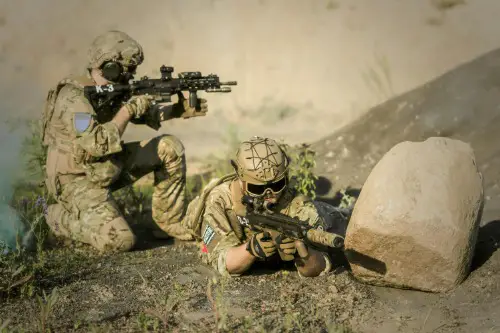
The origin of this phrase comes from the practice of having soldiers bite down on a bullet during surgery or other painful procedures to endure the pain. In the heat of battle, medical treatment often had to happen quickly, and biting a bullet served as a makeshift anesthetic. Today, the phrase refers to facing a difficult or unpleasant situation head-on, without hesitation or avoidance, according to Morgan Cutolo from Reader’s Digest. It’s often said when someone has to do something tough but necessary, like dealing with an uncomfortable truth.
In the military, biting the bullet was associated with bravery and grit, as it was about enduring hardship without showing weakness. Now, it’s used more broadly, from having an uncomfortable conversation to dealing with a tough personal decision. The term captures the essence of pushing through discomfort to get to the other side. It’s a vivid example of how military practices can morph into widely understood life advice.
4. “On the Ball”
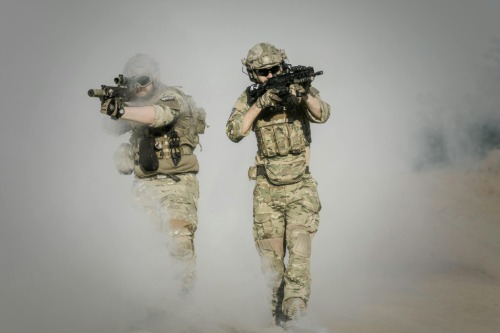
“On the ball” comes from a military phrase that referred to a soldier staying alert and ready for action, particularly in situations that required quick responses. It was essential for soldiers to stay focused and attentive to their surroundings, hence the phrase. Nowadays, it’s used to describe someone who is sharp, aware, and doing their job well. When someone is said to be “on the ball,” it means they are quick to act, efficient, and generally performing at their best.
The phrase started in the military, where soldiers were often given tasks that required immediate action, such as spotting dangers or responding to commands. Over time, it morphed into a more general compliment used in offices, schools, and other settings. Whether you’re keeping up with your tasks or handling a fast-paced situation, being “on the ball” is a good thing. The transformation from a serious military expectation to a light compliment shows how language can evolve.
5. “The Real McCoy”
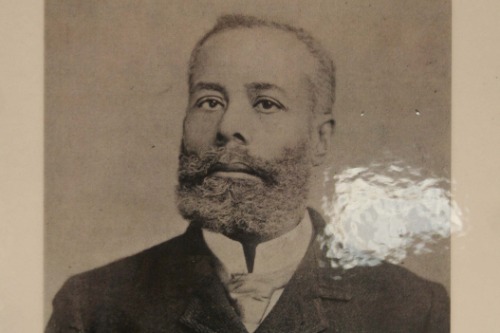
The “Real McCoy” is a phrase with origins tied to a famous African American engineer, Elijah McCoy. He patented a lubrication device that worked so efficiently that people began asking for the “real McCoy” rather than a knock-off version, according to Kat Eschner from Smithsonian Magazine. Soldiers in the military were among those who prized genuine, high-quality equipment, and this phrase came to represent authenticity. Today, it’s used to describe something genuine or the original, whether it’s a brand, product, or person.
In the military, having authentic, reliable gear was of utmost importance, especially in critical situations where performance mattered most. As McCoy’s inventions became known for their quality, his name became associated with anything that was genuine or top-of-the-line. The phrase continues to be a go-to expression when distinguishing between something real and a cheap imitation. It’s a wonderful example of how someone’s legacy can shape common speech.
6. “Full Steam Ahead”
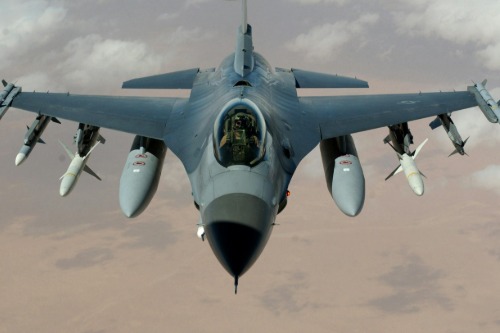
“Full steam ahead” is an expression that originated from the era of steam-powered ships and trains, which were often used by the military. It was a command to go forward at full speed, representing a commitment to progress without hesitation. Today, it’s used to indicate moving forward with a project or plan without slowing down, according to the Merriam-Webster dictionary. When someone says, “full steam ahead,” it means they’re giving something their all, pushing toward success with full force.
In the military, especially during the 19th century, steam-powered vessels were essential for moving troops and supplies. The phrase became synonymous with pushing forward aggressively, regardless of obstacles. Nowadays, it’s commonly used in both business and personal contexts when someone is determined to move forward with their goals. It captures that spirit of relentless momentum and refusal to back down.
7. “In the Doghouse”

“In the doghouse” has military roots connected to punishment and isolation. Soldiers who misbehaved or violated orders were sometimes sent to the doghouse, a small, enclosed space where they were kept isolated for a time. Today, it’s a humorous way of saying someone is in trouble or out of favor, typically with their partner or friends. It’s not a severe punishment anymore, but more of a playful way of expressing disapproval.
The term likely comes from naval traditions, where sailors would be punished for disobedience by being placed in a confined space, often with a dog or isolated from the rest of the crew. Over time, the term shed its military implications and became a part of everyday language. It’s often used when someone is in “hot water” for doing something wrong, like forgetting an important date or making a mistake at work. It shows how a once serious term became part of casual conversation.
8. “Under the Radar”
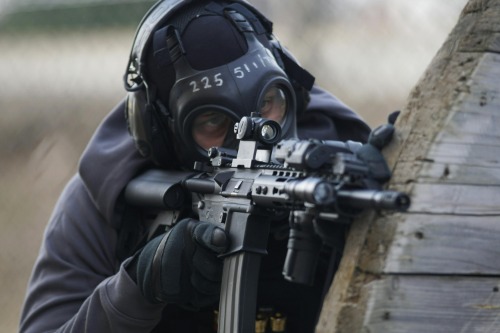
“Under the radar” originated from military aviation, where aircraft would fly beneath radar detection to avoid being seen by enemy forces. This strategy was essential for surprise attacks or stealth missions. These days, it’s used when someone or something goes unnoticed or stays out of the public eye. It’s often used to describe someone quietly working on something without drawing attention or when something flies under the radar of scrutiny.
In military operations, staying “under the radar” could be a matter of life or death, as it allowed troops to operate with minimal interference. Outside of the military, the phrase became a metaphor for any activity conducted without drawing unwanted attention. Whether it’s a secret project or just laying low, this term captures the idea of operating in stealth mode. It shows how a military tactic can perfectly describe discreet actions in civilian life.
9. “By the Book”
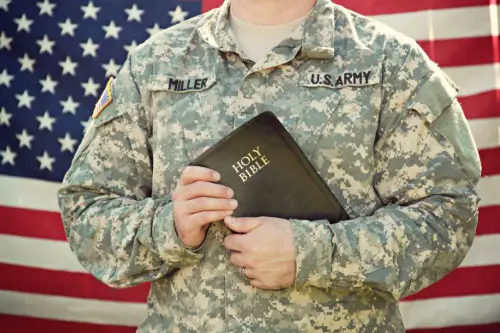
“By the book” comes from military procedures, where following strict guidelines and orders was essential for maintaining discipline and organization. The phrase suggests that something is being done exactly as prescribed, with no deviation. Today, it’s used to describe someone who adheres to rules or follows a specific procedure to the letter. Whether in the workplace or in personal habits, being “by the book” means no shortcuts or improvisation.
In the military, the importance of following regulations and orders could mean the difference between success and failure in a mission. As the term spread to civilian life, it became a way to emphasize adherence to the rules, especially in professional settings. People often say someone is “by the book” when they are exceptionally meticulous or rule-abiding. It highlights how military discipline shaped a common phrase used to describe precise behavior.
10. “Take a Rain Check”
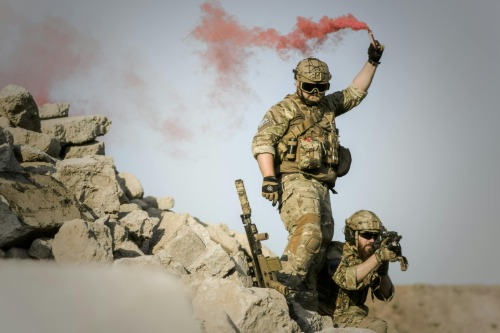
“Take a rain check” originally comes from the practice at baseball games, where tickets were given to spectators who couldn’t attend the game due to rain, allowing them to attend a future game. In the military, it was used when operations were delayed or rescheduled due to weather conditions. Over time, the phrase evolved into something people say when they have to decline an offer but promise to accept it at a later time. It’s now a polite way of postponing plans or offers without completely rejecting them.
The term was particularly common during the early 20th century when sports games were often delayed or postponed due to weather. It took on a broader meaning, beyond just sporting events, to reflect any postponed plans. Nowadays, it’s part of everyday vocabulary, particularly in casual situations where one can’t follow through immediately but wants to keep the door open for later. It’s an excellent example of how language can adapt to fit various contexts.
11. “Big Guns”
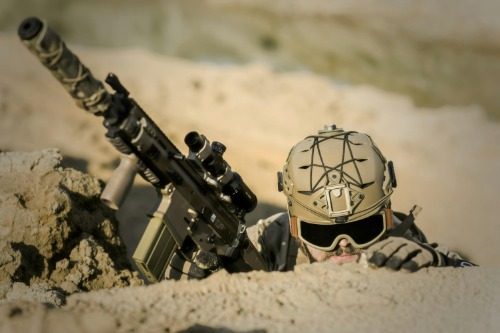
The phrase “big guns” has military origins tied to heavy artillery used in battle. In this context, it referred to powerful weapons or forces that could make a significant impact during a conflict. Today, the term is used to describe people or things that are powerful or influential, particularly in business or politics. When someone says a company has “big guns,” they mean it has significant resources or influential people driving it forward.
In the military, big guns represented the most powerful weapons available, often making the difference in a battle’s outcome. The phrase transitioned to civilian speech as a metaphor for any influential or powerful force. It’s used when someone or something has substantial impact, whether in a literal or figurative sense. It’s a great example of how military terms can be transformed into expressions that carry broader meanings.
12. “Jump the Gun”
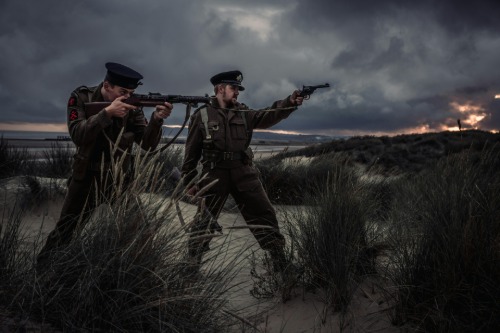
“Jump the gun” is a phrase that stems from the starting signal used in races, particularly those where a gunshot or horn was the cue to begin. If a runner or competitor started before the signal, they would “jump the gun,” which was seen as a violation. In the military, this was also applied to soldiers rushing into action before the proper command. Now, it’s commonly used to describe someone who acts prematurely, without waiting for the right moment.
The military connection is clear in that early action without proper authorization could lead to chaos or failure. In civilian life, it now refers to anyone who gets ahead of themselves, like sending an email before all the information is gathered or making a decision too quickly. The term captures the essence of impatience and the consequences of rushing into things without careful consideration. It’s an apt reminder of the importance of timing in any situation.
13. “Catch-22”

“Catch-22” originated from the novel Catch-22 by Joseph Heller, which was set during World War II. The term refers to a no-win situation where someone is trapped by contradictory rules, often in bureaucratic systems. In the military, it referred to situations where soldiers couldn’t escape dangerous duties because the rules were self-fulfilling. Today, it’s used to describe any situation where someone is stuck due to conflicting conditions, making it impossible to win.
The military context highlighted how a soldier might be forced to continue dangerous work because of an illogical rule that worked against them. Outside the military, the phrase became widely used to refer to any paradox or impossible scenario. It has grown into a staple of modern speech, especially in situations involving contradictory regulations or red tape. The fact that it started in a work of fiction based on real military frustrations shows how powerful storytelling can be in shaping everyday language.
14. “In the Line of Fire”
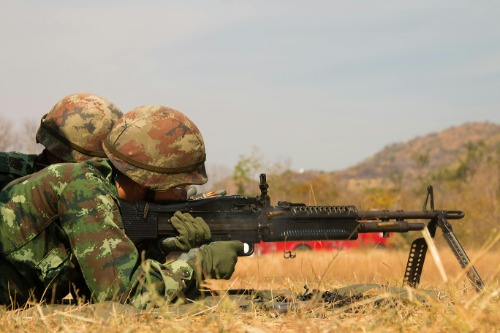
“In the line of fire” comes directly from military combat, referring to a soldier being in the path of an enemy’s gunfire. It’s a term that conveys both literal and figurative danger, often used to describe someone in a risky or vulnerable position. Now, it’s used when someone is facing potential criticism or danger in any situation, whether at work or in personal matters. It serves as a reminder that sometimes, being in the “line of fire” is unavoidable.
The phrase has its roots in military combat, where soldiers had to be acutely aware of the line of fire to avoid injury or death. Over time, the phrase was adopted into civilian life, typically in situations where someone is under scrutiny or facing challenges. Whether it’s taking responsibility for a difficult decision or simply being in the spotlight, “in the line of fire” implies that one is exposed to potential risks or consequences. It’s an effective way of expressing vulnerability in high-stakes situations.
15. “When the Chips Are Down”
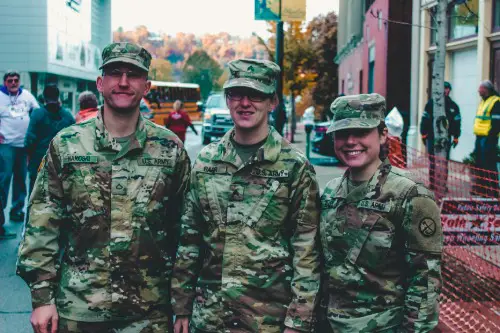
This phrase has its origins in military gambling, where chips were used as a form of currency in games. During times of battle, soldiers would sometimes play cards to pass the time, and the phrase referred to when the stakes were at their highest. Now, it’s used to describe situations when things are tough or when someone is under extreme pressure. Saying “when the chips are down” signals that it’s a time for action, and only the strongest will make it through.
In the military, being under pressure was common, especially during critical operations or tough assignments. The phrase became a metaphor for moments when someone’s character and abilities are truly tested. Today, it’s used to refer to any tough situation that requires grit, determination, and resilience. Whether it’s facing an unexpected challenge or trying to overcome adversity, “when the chips are down” perfectly captures those intense moments.


